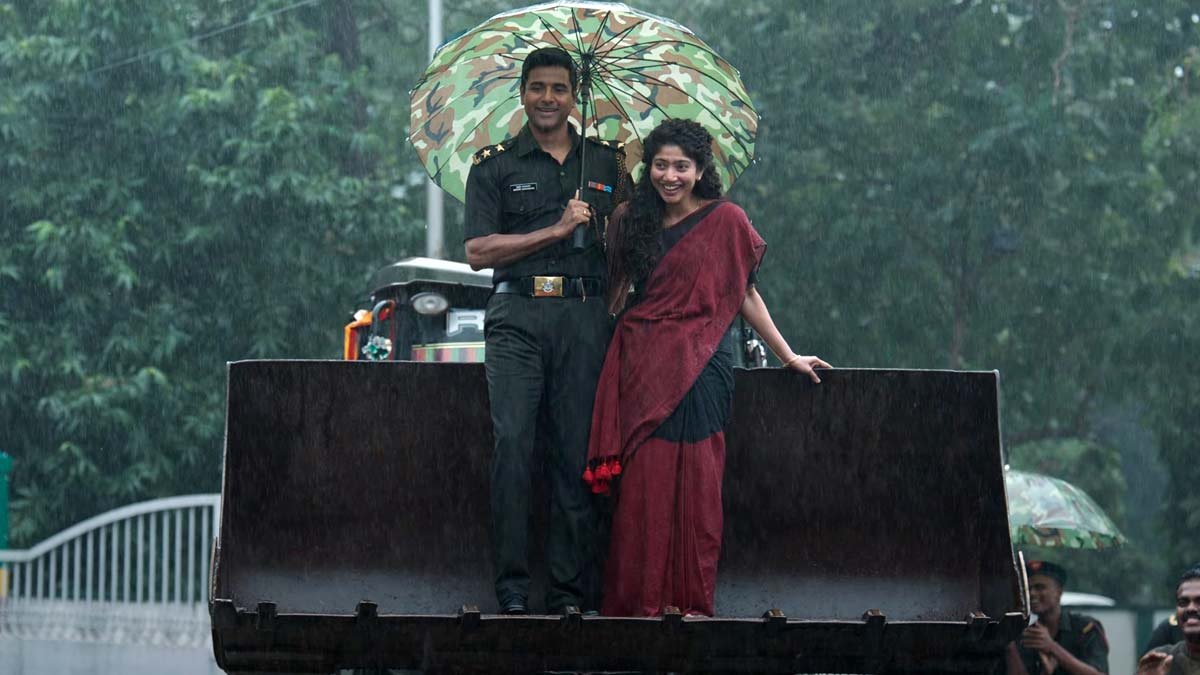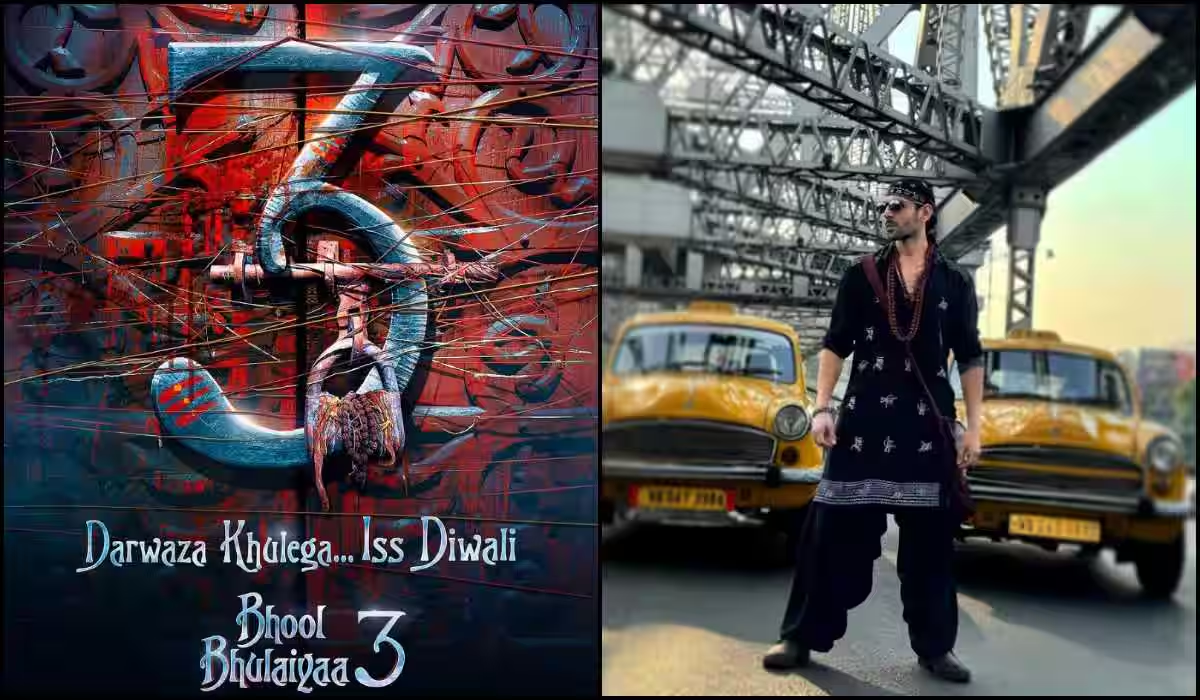Berlin Movie Review: Aparshakti Khurana and Ishwak Singh Shine in a Gripping Spy Thriller
 berlin movie zee5 review by filmyreview
berlin movie zee5 review by filmyreviewBerlin, directed by Atul Sabharwal, is a gripping espionage thriller that delves into the murky world of intelligence and deceit. Set in the early 1990s, the film stars Aparshakti Khurana and Ishwak Singh in pivotal roles, delivering performances that anchor the narrative with depth and authenticity. This Berlin movie review aims to provide an in-depth look at the film’s key elements and its overall impact.
Key Highlights
- Intricate Plot: The film weaves a complex narrative filled with twists and turns, keeping the audience engaged throughout.
- Strong Performances: Aparshakti Khurana and Ishwak Singh deliver compelling performances that add depth to their characters.
- Authentic Setting: The 1990s backdrop is meticulously recreated, enhancing the film’s atmosphere.
- Moral Ambiguities: The film explores the grey areas of truth and justice, making it a thought-provoking watch.
- Cinematography and Music: Arun Varma’s cinematography and Sneha Khanwalkar’s music significantly contribute to the film’s tense and evocative atmosphere.
Characters Introduction
- Ashok Kumar (Ishwak Singh): A deaf and mute man suspected of being a spy. His character is central to the plot, and Ishwak Singh brings a quiet intensity to the role, making Ashok’s plight deeply affecting.
- Pushkin Verma (Aparshakti Khurana): A sign-language interpreter caught between his duty and his moral compass. Aparshakti Khurana’s portrayal is both nuanced and powerful, showcasing his versatility as an actor.
- Jagdish Sondhi (Rahul Bose): An intelligence officer leading the investigation. Rahul Bose’s performance adds a layer of authority and complexity to the character.
- Supporting Characters: The film features a strong supporting cast that includes seasoned actors who add depth to the narrative, each playing crucial roles in the unfolding drama.
Plot Overview
The story revolves around Ashok Kumar, a deaf and mute man who is suspected of being a spy for a foreign intelligence agency. The backdrop is the impending visit of the Russian President to India, which sets the stage for a high-stakes investigation. Pushkin Verma, a sign-language interpreter, is brought in to assist intelligence officer Jagdish Sondhi in interrogating Ashok. As the plot unfolds, it becomes clear that nothing is as it seems, leading to a series of twists and turns that keep the audience on the edge of their seats. This Berlin movie review highlights how the plot’s complexity adds to the film’s intrigue.
Performances
Aparshakti Khurana sheds his comedic persona to deliver a restrained and powerful performance as Pushkin Verma. His portrayal of a man caught between duty and morality is both compelling and nuanced. Ishwak Singh, on the other hand, shines as Ashok Kumar, bringing a quiet intensity to his role that makes his character’s plight deeply affecting. Their performances are a significant highlight of this Berlin movie review.

Direction and Screenplay
Atul Sabharwal’s direction is meticulous, with a keen eye for detail that brings the 1990s setting to life. The film’s atmosphere is enhanced by its vintage aesthetic, from the costumes to the locations, which adds to the authenticity of the narrative. The screenplay is tightly woven, balancing the suspense of the espionage plot with the emotional depth of its characters. This Berlin movie review acknowledges the director’s skill in creating a compelling narrative.
Themes and Symbolism
Berlin is not just a spy thriller; it is a commentary on the nature of truth and the moral ambiguities inherent in the world of espionage. The film explores how truth can be manipulated and how individuals navigate the fine line between right and wrong in their quest for justice. The title itself is symbolic, referencing the Berlin Wall and the end of the Cold War, which parallels the film’s exploration of division and reconciliation. This Berlin movie review delves into the deeper themes that make the film thought-provoking.
Cinematography and Music
The cinematography by Arun Varma is another highlight of the film. The use of shadows and light plays a crucial role in creating the tense atmosphere that pervades Berlin. The camera work is both intimate and expansive, capturing the claustrophobic interiors of interrogation rooms as well as the sprawling landscapes that symbolize the larger political context. The music by Sneha Khanwalkar complements the narrative perfectly, with a score that is both haunting and evocative. The sound design, too, deserves special mention for its ability to heighten the tension and draw the audience deeper into the story. This Berlin movie review appreciates the technical aspects that enhance the film’s impact.
Character Development
One of the strengths of Berlin is its well-developed characters. Each character is given a backstory that adds depth to their motivations and actions. Pushkin Verma, for instance, is not just an interpreter but a man grappling with his own moral dilemmas. His interactions with Ashok Kumar reveal layers of his character, making him more than just a tool in the investigation. Similarly, Ashok Kumar is portrayed not just as a suspect but as a man with his own fears and hopes, making his character relatable and sympathetic. This Berlin movie review highlights the film’s focus on character development.
Pacing and Editing
The pacing of Berlin is deliberate, allowing the story to unfold gradually. This slow-burn approach may not appeal to everyone, but it serves to build suspense and develop the characters more fully. The editing by Deepa Bhatia is sharp, ensuring that the narrative remains focused and engaging. The transitions between scenes are smooth, maintaining the flow of the story without any jarring interruptions. This Berlin movie review notes the film’s pacing as a crucial element of its storytelling.
Social and Political Commentary
Berlin also serves as a social and political commentary on the times it portrays. The film delves into the complexities of the post-Cold War era, highlighting the paranoia and mistrust that characterized the period. It also touches upon issues of identity and belonging, as seen through the experiences of its characters. The film’s portrayal of the intelligence agencies and their methods raises questions about the ethics of surveillance and the impact of state power on individual lives. This Berlin movie review explores the film’s broader social and political implications.

Critic’s Point of View
Critics have lauded Berlin for its nuanced storytelling and strong performances. Aparshakti Khurana’s transformation from a comedic actor to a serious performer has been particularly praised. Critics have noted his ability to convey complex emotions with subtlety, making Pushkin Verma a memorable character. Ishwak Singh’s portrayal of Ashok Kumar has also received acclaim for its depth and intensity.
The film’s direction and screenplay have been highlighted as major strengths. Atul Sabharwal’s ability to create a tense and immersive atmosphere has been appreciated, with critics noting the film’s meticulous attention to detail. The screenplay’s balance of suspense and emotional depth has been praised for keeping the audience engaged while exploring complex themes.
However, some critics have pointed out the film’s slow pacing as a potential drawback. While the deliberate pace allows for character development and suspense, it may not appeal to viewers looking for a more fast-paced thriller. Despite this, the film’s exploration of moral ambiguities and its subversive take on the espionage genre have been widely appreciated. This Berlin movie review reflects the critical consensus on the film.
Audience Reception
Berlin has received a mixed response from audiences. While some have praised its nuanced storytelling and strong performances, others have found its pacing too slow. However, most agree that the film’s exploration of moral ambiguities and its subversive take on the espionage genre make it a thought-provoking watch. The film’s ability to evoke a sense of unease and its refusal to provide easy answers have been particularly appreciated by critics. This Berlin movie review captures the varied audience reactions.
Conclusion
Berlin is a well-crafted thriller that rewards patient viewers with its intricate plot and strong performances. It stands out in the genre for its subversive take on espionage, eschewing the typical action-packed sequences for a more cerebral and emotionally resonant narrative. If you’re a fan of slow-burn thrillers with deep character portrayals, Berlin is a must-watch.
In conclusion, Berlin is a film that challenges the conventions of the espionage genre. Its focus on character development, moral ambiguity, and social commentary sets it apart from more conventional spy thrillers. The performances by Aparshakti Khurana and Ishwak Singh are particularly noteworthy, adding depth and authenticity to the narrative. Atul Sabharwal’s direction, combined with Arun Varma’s cinematography and Sneha Khanwalkar’s music, creates a film that is both visually and emotionally engaging. While its slow pacing may not appeal to everyone, those who appreciate a more thoughtful and nuanced approach to storytelling will find much to admire in Berlin.

















